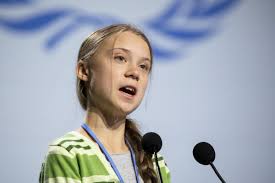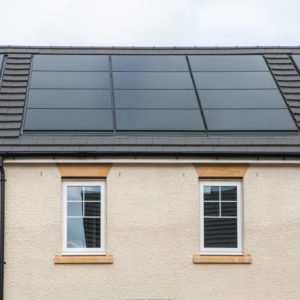Five years on from the Paris Agreement on climate, there is still more talk than action. Levels of greenhouse gases in the atmosphere continue to rise. Green schemes should be all around us. But they are not.
Just before Christmas I noticed scaffolding on the roofs of a line of a dozen or so houses in a village near where I live in Southern England. These are housing association properties, originally council houses. They have big roofs, all south facing, with not a tree in sight to cast shade. Perfect, I thought, for solar panels. Perhaps that’s what they were doing.
I passed several more times. It became clear. They were re-roofing the houses with new tiles. It was nothing to do with solar panels. And why shouldn’t they, you may ask? The housing association was simply meeting its obligations, which include keeping its tenants’ properties in good order.
This is why even such insignificant schemes as this matter. They are examples of a bigger picture of inaction. That re-roofing work was carried out in the fifth anniversary month of the signing of the Paris Agreement. Remember the delegates, including world leaders, whooping and hugging each other as they pledged to limit temperature increases to 2°C, and ideally 1.5°C. So what has happened in five years?
The world has released more CO2 than ever, and we are on target to overshoot the 2°C measure by some distance. True, Joe Biden is coming to the White House, and world governments, including the U.K.’s, have announced ambitious CO2 reduction targets. The cost of renewables has plummeted, and, in the west at least, we are slashing our use of fossil fuels, particularly coal.
On the other hand, radical action on climate change has not become the mantra of our times. Three and a half years on from Paris, it took a Swedish schoolgirl to remind the developed world what it had to do. Even then most governments, local and national, did little more than declare a climate emergency, the easiest form of green virtue signalling.
Some organisations, however, showed it was possible to act as well as talk. Early this year (2021), a housing association in Wales will fit solar panels to 650 roofs on the Penderry housing estate in Swansea. The scheme is thought to be the biggest renewable energy retrofitting project in the UK.
Every home will be fitted with smart thermostats and intelligent heating control, managed through an app. Tenants will harness power generated from panels on their roofs, and store it for later use by the entire community, so that homes that do not receive as much sunlight are not disadvantaged. The properties, owned and managed by Pobl, Wales’ largest provider of affordable housing, are projected to generate up to 60% of their own electricity, bringing handsome reductions to bills.
Housing associations are private, non-profit making organisations that provide low-cost accommodation. Any surplus they make must be used to maintain existing housing and to help finance new homes, not to benefit directors or shareholders. They do receive receive public funding. (Ironically the Swansea scheme is supported by £3.5m from the European Regional Development Fund, via the Welsh government.)
“Directly after Paris 2015, those with the power to do so should have been saying: ‘We start now. Forget targets and forward plans. We build this thinking into everything we do.'”
There may be many sound reasons why those properties in my local village could not be fitted with solar panels, to the clear advantage of the tenants (as well as the planet) while all that scaffolding was up back in December. Maybe there are no grants available; and the housing association had financial constraints which meant it couldn’t borrow, even though the cost of borrowing is historically low, and solar panels really are cheap these days.
Was the fitting of solar panels while they were doing the roof anyway even considered at the board meeting when the scheme was approved? Whatever the reason, this is a golden opportunity missed. Those roofs are now good for 30 years. When will they get their solar panels?
“Nothing to Get Hung About” to quote John Lennon? But this is a tiny, but instructive, example of inaction on climate change. And there will be countless more, dwarfed by the almost universal practice of not fitting solar panels to the roofs of new houses. Directly after Paris 2015, those with the power to do so (and although that includes all of us, there is only so much difference the individual householder can make) should have been saying: “This is important. We start now. Forget targets and forward plans. We build this thinking into everything we – statutory body, council, organisation, business – do.”
Greta Thunberg says the world needs to learn the lessons of coronavirus and treat climate change with similar urgency. It seem we have the awareness, but not yet the urgency.
Is this what action on climate change looks like? (article).


